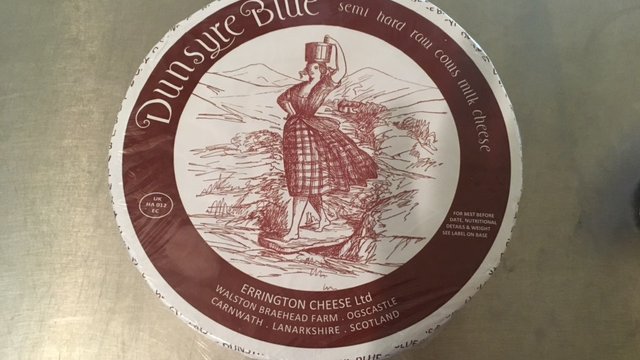On Air Now
The Capital Late Show with Sonny Jay 10pm - 1am
29 March 2017, 15:08

The consumption of Dunsyre Blue cheese was the source of a fatal E.coli outbreak last year, an investigation has concluded.
The finding, announced after an "extensive'' probe, is contained in a report published by Health Protection Scotland (HPS) on behalf of a multi-agency Incident Management Team set up to look into and manage the outbreak.
Scotland's food safety watchdog said the evidence presented in the report fully supports and justifies the decisions it took at the time to protect consumers.
Lanarkshire-based manufacturer Errington Cheese has always disputed its unpasteurised Dunsyre Blue was the cause of the outbreak.
It said its concerns about the investigation into its produce and the outbreak remain, as it called for a more thorough probe.
A total of 26 cases of the same strain of E.coli O157 were identified in the outbreak, which occurred between July and mid-September 2016. Seventeen people were hospitalised and a three-year-old girl died.
The 100-page report said: "Potentially pathogenic E.coli were able to enter and survive the cheese production process at the food business.
"Positive results were obtained for cheese produced over a period of four months, indicating a systematic potential for STEC (Escherichia coli) to enter the process and contaminate final products.
"Extensive investigations concluded that the source of the outbreak was the consumption of Dunsyre Blue.''
Investigators said the conclusion was based on evidence from epidemiological and food chain investigations and was supported by microbiological evidence and "deficiencies identified'' in control and monitoring procedures at the business.
Subsequently, another cheese from the manufacturer, Corra Linn, was also found to contain potentially pathogenic E.coli.
Watchdog Food Standards Scotland (FSS), which last year recalled cheese from the producer in light of the outbreak, said it supports the report's findings.
Chief executive Geoff Ogle said: "Food Standards Scotland is satisfied that the evidence and conclusions presented in this report fully support and justify the decisions that we took to protect consumers.
"All of our decisions and actions were taken with the sole aim of protecting public health. This report should allay any concerns with regards to our decisions and assure others that our actions were evidence based. That will always be the case.''
In a statement, Errington Cheese said: "On an initial reading, all of our concerns regarding the investigation into our cheese and the outbreak of illness remain.
"We believe that more detailed investigations into the cause of the outbreak are needed. This is particularly in relation to those cases where HPS were unable to find any direct link to Dunsyre Blue.''
It questioned why blue cheese was the only food stuff considered from an early stage in the investigation, and said: "There is no microbiological evidence that Dunsyre Blue caused the outbreak - all they have concluded is that raw milk cheese carries a small risk of STEC which is already well recorded in scientific literature.
"There has been no highly pathogenic STEC found in any of our products, nor anything found linking our cheese to the outbreak. This is fact.''
Errington's new season Lanark Blue cheese was recently put on the market.
The firm was found to have ''the relevant controls in place'' to allow cheese production to start again under a revised system, FSS said.